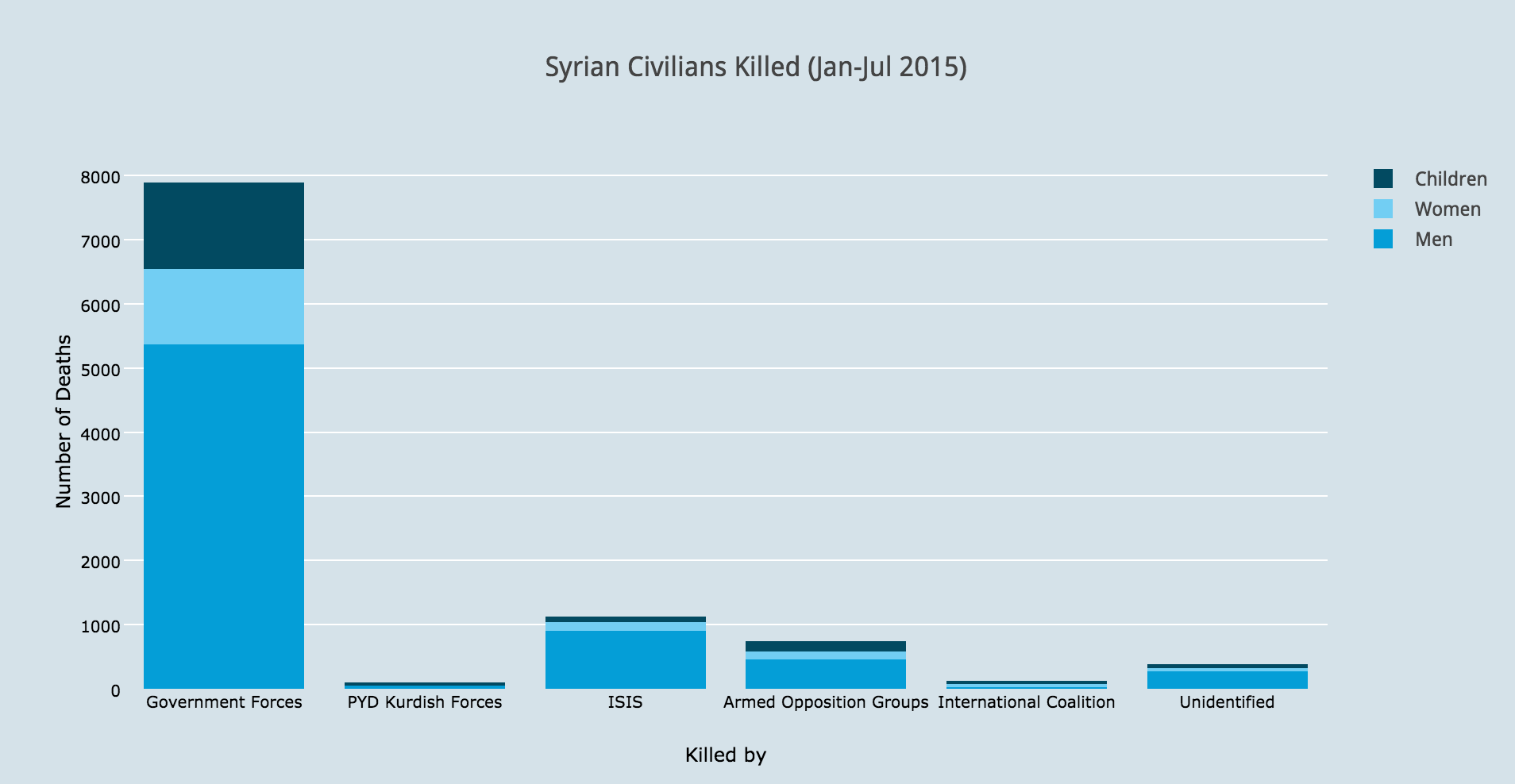Terrorism Today: Boko Haram Bigger Than ISIS; Most Western Deaths Have Nothing to Do With Islam; & More
The Global Terrorism Index charts 80 percent increase in terrorism deaths, with 33,000 killed in 2014.
The Global Terrorism Index for 2015, which has tracked the number and severity of terrorist attacks on the planet since 2000, has just been released. Among its findings:
- The number of terror-related deaths rose by 80 percent from 2013 to 2014, with almost 33,000 deaths in the latter year.
- Iraq remains the biggest scene of terrorism, with almost 10,000 deaths in 2014 from terrorism.
- Nigeria's terrorism toll increased 300 percent in 2014, mostly due to the actions of Boko Haram.
- The Islamic State (ISIS) and Boko Haram account for 51 percent of terrorism deaths, and Boko Haram is the deadlier of the two groups.
Between 2006 and 2014, the report notes that about 70 percent of deaths from terrorism in Europe and North America come not from religiously motivated actors who are connected to international groups but from politically motivated "lone wolf" types.
The majority of terrorist attacks in the West are not carried out by well-organised international groups. Instead, the terrorist threat in the West largely comes from lone wolf terrorism. Lone wolf terrorists are individuals or a small number of individuals who commit an attack in support of a group, movement, or ideology without material assistance or orders from such group. For example, the Boston bombings would be a lone wolf attack as the two brothers committed the attacks without any outside support. These types of attacks account for 70 per cent of all deaths in the West from 2006 to 2014.
By contrast, about 19 percent of deaths in Europe and North America came from terrorists motivated by Islamic fundamentalism.
The report, put together by the Institute for Economics and Peace, also estimates that Iraq's economy is only about two-thirds of what it would be absent all the terrorism that places it at the top of the index.

To put some of this in context, it's worth looking at the leading causes of death in Syria, the country whose civil war is not only a battlegroud between ISIS and various Western armies but the cause of millions of refugees in the Middle East and beyond. In the first seven months of this year, ISIS killed around 1,000 Syrians. That terrible number pales in comparison to the nearly 8,000 killed by the Syrian regime led by Bashar al Assad.
That disparity also makes helps explain why the situation in Syria is so complicated. While the United States is currently focused on ISIS in Syria and Iraq, our government has also called for regime change. Iran and Russia are simultaneously fighting ISIS and supporting Assad. French strikes in the area are focused on ISIS as well, which is also an enemy of various Sunni Gulf States (Saudi Arabia and the like) who are otherwise enemies of Iran and Syria.


Show Comments (111)